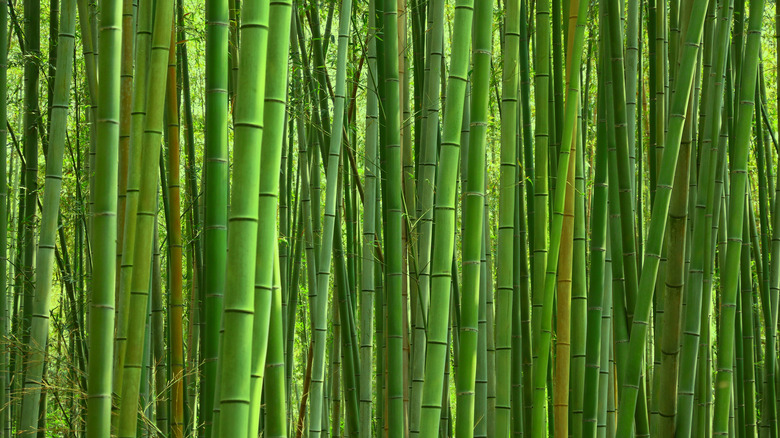The Real Reason Walmart Just Got A $3 Million Penalty From The FTC
In this climate, it pays to appear environmentally friendly. Soon, however, it may be Walmart and Kohl's who pay. The Federal Trade Commission hit the two major retailers with lawsuits for falsely advertising some of their products as being made from bamboo and with eco-friendly means. As listed out in the complaints against both Walmart and Kohl's, the dishonestly marketed products include towels, weighted blankets, and mattress protectors. All of them have bamboo at the forefront of their product titles, giving them the veneer of being a more sustainable option.
In reality, the FTC explained, the bamboo products were produced by breaking bamboo down into rayon. Such a process "requires the use of toxic chemicals and results in hazardous pollutants." If the FTC's suits succeed, Walmart and Kohl's will have to stop presenting their "bamboo" products as such. Walmart would also have to pay $3 million, while Kohl's faces a fine of $2.5 million.
Well, at least the lies are recycled
The FTC seems to have a good chance of winning its cases against both Walmart and Kohl's — which it mentions are the largest penalties it has ever charged retailers for "greenwashing" — because there is a set precedent for holding companies accountable for fraudulent bamboo claims. In fact, these claims have been used so many times, it's the only "recycled" part of this situation.
In 2009, Women's Wear Daily ran a piece with the familiar headline, "FTC Charges Four Firms With False Bamboo Labeling," explaining that their supposedly sustainable products were made of bamboo-turned-rayon, rendering them no longer biodegradable. In 2015, the issue came up again. That time, the four perpetrators (including Amazon and Sears) paid more than $1.25 million in penalties. To avoid such suits and penalties, companies have to comply with the requirements of the the Textile Products Identification Act, which specify that they must advertise these kinds of products as "rayon made from bamboo." Now we know that, like reusable bags, these items are not as environmentally friendly as you'd think.

